February 22nd, 2024

Homeownership Rates Over the Last 20 Years
Are you debating if this is the right time to buy a house? Take a look at the homeownership rates over the last 20 years to decide if this is the right time for you.
Owning your first home will be one of the biggest investments of your life. But, it will also be one of the biggest accomplishments. Over the years, homeownership rates have fluctuated due to various factors. Before buying a home, consider how homeownership rates have changed over the last 20 years to ensure it is the right time.
There are many common mistakes to make along the way, and the buying process can be hard to navigate. It is imperative to work with a trusted real estate agent as you buy your new home.
With changing interest rates and high mortgages, the last couple of years have been rough for homebuyers. The National Association of Realtors reported that 2023 was the lowest number of home sales in almost 30 years. However, the housing market is off to a good start so far.
Keep in mind that the housing market changes for numerous reasons, and it can be hard to predict. Nevertheless, if it is the right time for you, then don't wait any longer to find your dream home. Before, make sure you know how homeownership rates have changed over the last 20 years.
Keep reading to learn all about the homeownership rates over the last 20 years.
What Are Homeownership Rates?
Homeownership rates will change throughout the years due to many factors. Homeownership rates are the percentage of homes in the U.S. that are owner-occupied divided by the total number of occupied housing units. The rate will change based on factors like high mortgage and interest rates. Typically, these higher rates make it harder for people to buy homes.
According to Statista, Baby Boomers are twice as likely to own their home as Millennials. As of 2023, Millennials are between the ages of 27 and 42; if they buy fewer homes, the homeownership rate will be lower than in past years.
Most of the time, the homeownership rates rise with income. Homeownership rates are the highest in West Virginia, Delaware, Maine, and Alabama. West Virginia has a homeownership rate of 77.8%. The lowest homeownership rates are in New York and Washington, D.C., with rates of 53.6% and 44.7%.
The Census Bureau will release its "Quarterly Residential Vacancies and Homeownership" report, which has information about homeownership as a whole. This is usually released about a month after each quarter. Before you buy your next home, it is advisable to take a look at the current rates in your desired location.

Homeownership Rates Over the Years
Currently, the rental vacancy rate is 6.6%, the homeowner vacancy rate is 0.9%, and the homeownership rate is 65.7% in 2024. The Census Bureau will release the next quarterly residential vacancies and homeownership rates on April 30th, 2024.
The homeownership rates declined in the last quarter of 2023 due to low housing supply and higher mortgage interest rates. The rate has stayed below the 25-year average rate of 66.4% for the same reasons.
Check out this chart, which details the year-by-year homeownership rates in the United States over the last 20 years.
| Year | Homeownership Rate |
| 2004 | 69.0% |
| 2008 | 68.1% |
| 2012 | 65.4% |
| 2016 | 63.5% |
| 2020 | 67.9% |
| 2024 | 65.7% |
*Sourced from The U.S. Census Bureau
By looking at this chart, you'll see some dips and rises in homeownership rates following the all-time high in 2004. In 2008, the rates dipped for a number of reasons, mainly due to high mortgages and the housing market crash. Risky lending practices triggered the market crash, and borrowers couldn't afford house payments.
After the housing market crash in 2012, the median price of new homes was up 7.3% from the previous year. In addition, 19.9% of new single-family homes were sold. This seemed to mean that the housing market was on the rise.
During the fourth quarter of 2014, the country saw its lowest homeownership rate in over two decades at 64.0%. Earlier that year, it was at 69.4%. This was mostly due to the large increase in renters and the decrease in owners. Finally, in 2020, homeownership rates were on the rise again and have stayed stable since.
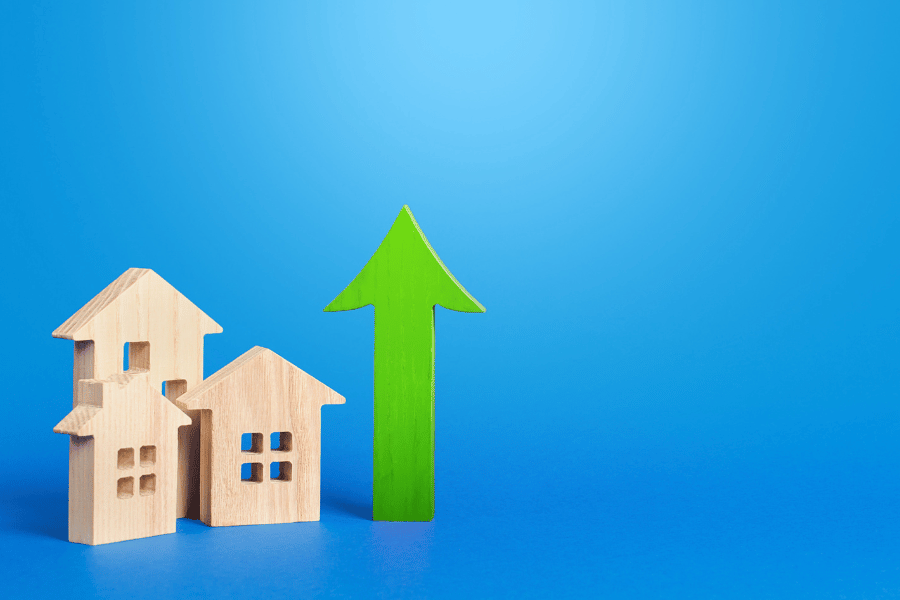
What Causes the Homeownership Rate to Fluctuate?
There are countless factors leading to the rise and fall of the U.S. homeownership rates. These four demographic trends between 1985 and 2015 were some of the reasons for fluctuations, according to the Urban Institute.
- The nonwhite percentage of the population increased from 81% to 67%.
- The overall population aged, more specifically the population aged 44 and younger, decreased from 49% to 36%.
- College-educated households increased from 22% to 40%.
- The married households with at least one child decreased from 29% to 20%.
However, these may be partially to blame for fluctuating rates; the leading causes from 2005 and 2015 were access to credit and the Great Recession. Following the loss of jobs during the pandemic, which mainly impacted young adults and low-wage occupational workers, these groups were seen as much less likely to buy a home.
In 2020, interest rates were also at a record low, and household incomes were at a record high before the pandemic started. Before this, the foreclosure rate was extremely low, which was directly related to the increase in the number of homeowners.
In addition, the rising cost of living and student loan debts greatly impact homeowners. Back in 2019, young households with a bachelor's degree or higher had the highest homeownership rate of 44.0%. College graduates are much more likely to own their own home.
Inflation directly impacts the housing market, especially since it rose to 8.00% in 2022 from 3.36% in 2000. This makes owning a home much less affordable for today's buyers.
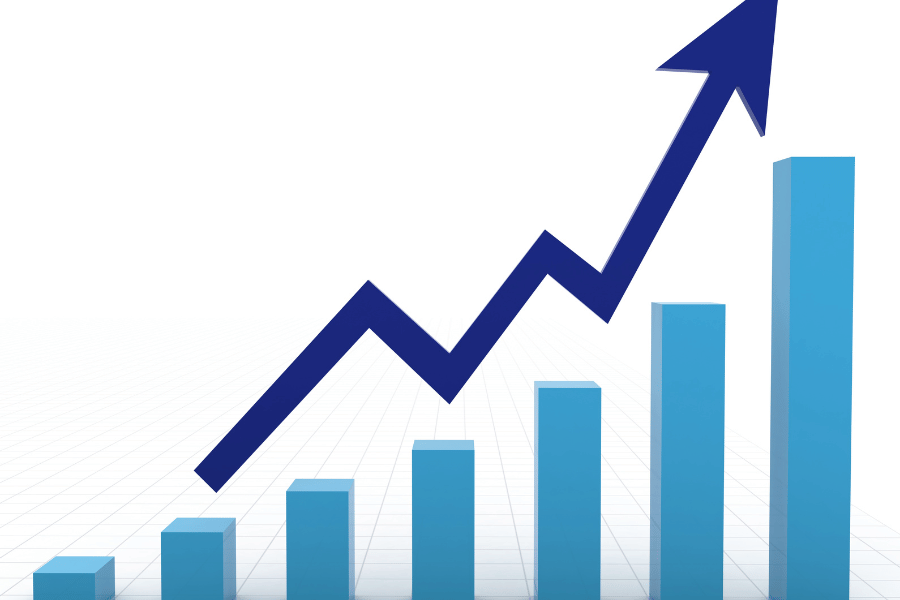
What has Caused Homeownership Rates to Fluctuate Over the Last 20 Years?
In the last 20 years, the cost of everything has risen dramatically in the United States. On average, the cost of living in the U.S. is 15% higher than in other countries. Housing, one of the main contributors to the cost of living, has specifically increased.
Home prices in the U.S. have increased by 48% in the last ten years and are expected to continue to rise. Due to inflation, the home prices are constantly changing the cost of living. If you are interested in buying your next home soon, the spring market is typically the best time.
Many were worried about a possible housing market crash in 2023 due to home prices rising faster than income, low availability of affordable housing, high rates of mortgage, predatory lending, and low home inventory. Luckily, the market didn't crash as predicted, and rates have risen since then.
Lenders in 2004 were extremely loose about their requirements, meaning more borrowers were approved for loans they could not afford. This, coupled with rising housing prices, led to a large increase in homeownership.
In 2008, after the housing market bubble burst, the rates continued to fall, and foreclosure rates rose. As home values fell, homeowners felt less confident about selling. Four years later, the housing market crash hit rock bottom, but that meant the rates began to rebound. The rate continued to climb until 2018.
In 2018, the strong economy meant buyers were able to afford to borrow money and buy their new homes. Surprisingly, the National Association of Realtors states that the pandemic led to an increase in homeownership. Rental and homeowner vacancy rates dropped as well, which showcased the strong housing demand during the pandemic.
Leading into 2024, the rate has remained approximately the same at 65.7%.
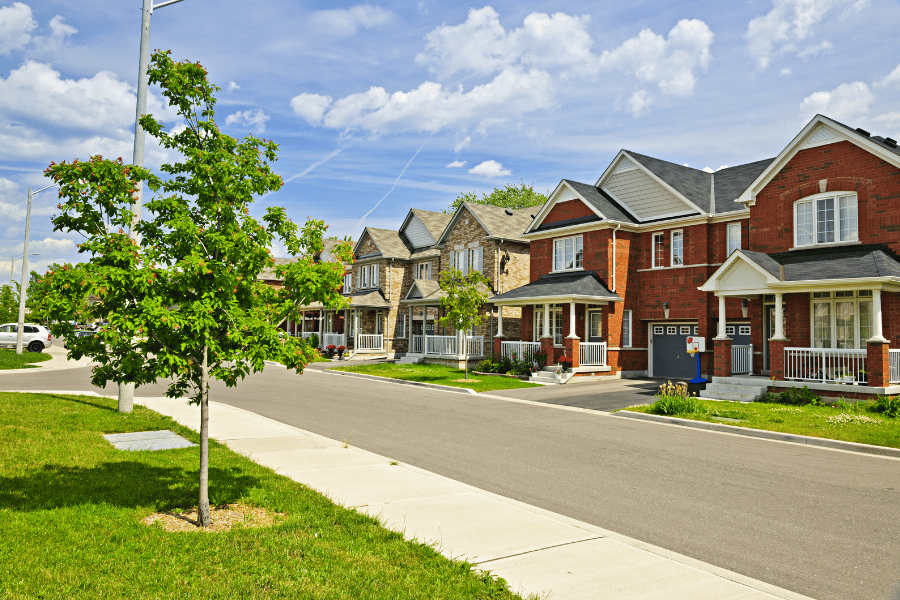
Is Now a Good Time to Buy a Home?
The housing market is almost impossible to predict, although many professionals believe it is highly unlucky for another housing market crash. The NAR predicts that house sales will increase by 23% this year.
Mortgage rates have remained under 7% so far this year, but they are, on average, higher than this time in 2023. In addition, housing market experts believe the rates will continue to decline over the course of the year. This means that experts believe this is the prime time to buy a home.
If you get cold feet about buying, renting is always a great alternative for those who need a change of pace but aren't financially ready to buy a home. Many even consider renting their house instead of selling it.
If you are debating whether or not to move, consider Green Bay, WI; Raleigh, NC; Boulder, CO; and Sarasota, FL, which are where most buyers are moving to in 2024. The best thing to do is ensure you can meet your family's needs and afford a new home. The best thing to do is talk with a trusted real estate agent about the best options for you.

Methodology
We used information and data from different sources and our own data to determine the homeownership rates over the last 20 years. Most of the data was sourced from the following sources:
- National Equity Atlas
- National Association of Realtors
- Statista
- The U.S. Census Bureau
- The U.S. Housing Market Conditions
- The Urban Institute
- Pew Research Center
FAQ: Homeownership rates over the last 20 years
Here are some commonly asked questions about homeownership rates over the last 20 years.
What is the rate of home ownership in the U.S. over time?
Homeownership rates in the U.S. have changed significantly over the years. Back in 1960, the rate stayed around 65%, then fell slightly in the 90s. After 2008, rates started rising again and have remained between 65% and 67%.
What is the trend in homeownership in the U.S.?
In 2022, homeownership rates reached their highest figure since 2011 at 65.9%. Before this, the highest rates were in 2004, before the 2008 recession hit.
Which state has the highest homeownership rate?
According to the National Equity Atlas, West Virginia, Main, and Minnesota have the highest homeownership rates. On the other hand, California, the District of Columbia, and New York have the lowest rates.
What generation owns the most homes?
The baby boomers currently own the largest share of homes in the country.
Why millennials don't want to buy houses?
Millennials are not buying homes for many reasons, the main reason being that they are breaking the trends by delaying marriage and children. Thus, they do not need to buy their first homes as early as previous generations. This doesn't speak for all millennials, but tighter lending criteria also have an impact as this makes homeownership more difficult for those with less credit history.
Homeownership Rates Over the Last 20 Years - The Bottom Line
It can be hard to decide when to buy your next home, and you may never know when the perfect time will be. However, if you understand how homeownership rates have changed over the years and what impacts homeownership, you can feel more prepared when the time is right.
Homeownership is difficult, and no matter where you want to live, you should always be able to afford your home. Buying a home has many hidden costs; with fluctuating homeownership rates, you should be prepared for anything.
Once you have decided to buy your first home, you are all set to find the best home in the best location. Raleigh, NC, is one of the fastest-growing areas in the country and has many beautiful homes for sale; you'll have to act fast if you want to buy your dream home in one of Raleigh's best neighborhoods.
Before you buy your next home in the Triangle, feel free to contact one of our helpful real estate specialists, as they are eager to help you find the perfect home. We know that buying a home can be overwhelming, so make sure you are prepared beforehand.

Ryan Fitzgerald
Hi there! My name is Ryan Fitzgerald, and I am a REALTOR®. My goal is to help you learn more about real estate through our Real Estate Blog! Hopefully, you enjoyed the above blog post and it found a way to provide help or value to you. When you're ready to buy or sell a home of your own let us know here. Please feel free to join the conversation by dropping us a comment below.
Related Blogs
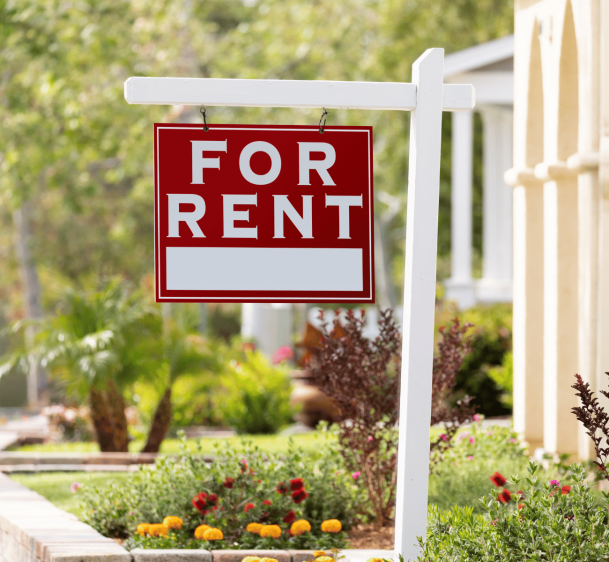
Are you considering buying a rental property and wondering if it fits you best? Keep reading to learn more about the pros and cons of owning a rental property.
January 17th, 2024
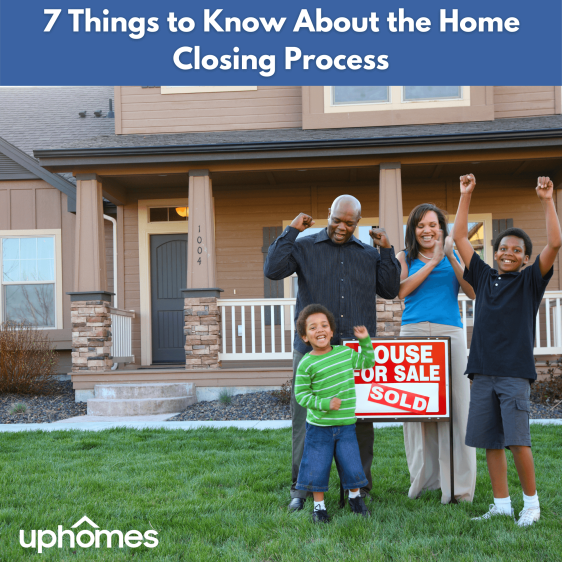
7 Things to Know About The Home Closing Process Congratulations on finding the perfect home and negotiating an offer with the seller, now you're moving on to the next phase: the home closing process...
December 23rd, 2020

Selling your home doesn't have to be difficult. Here are 9 tips to make selling your home simple, especially if it's your first time!
November 14th, 2019
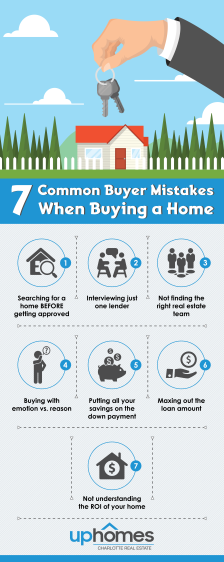
7 Common Mistakes Buyers Make When Buying a Home from Charlotte, North Carolina Realtor®, Ryan Fitzgerald ... Don't make these mistakes!
February 21st, 2018

